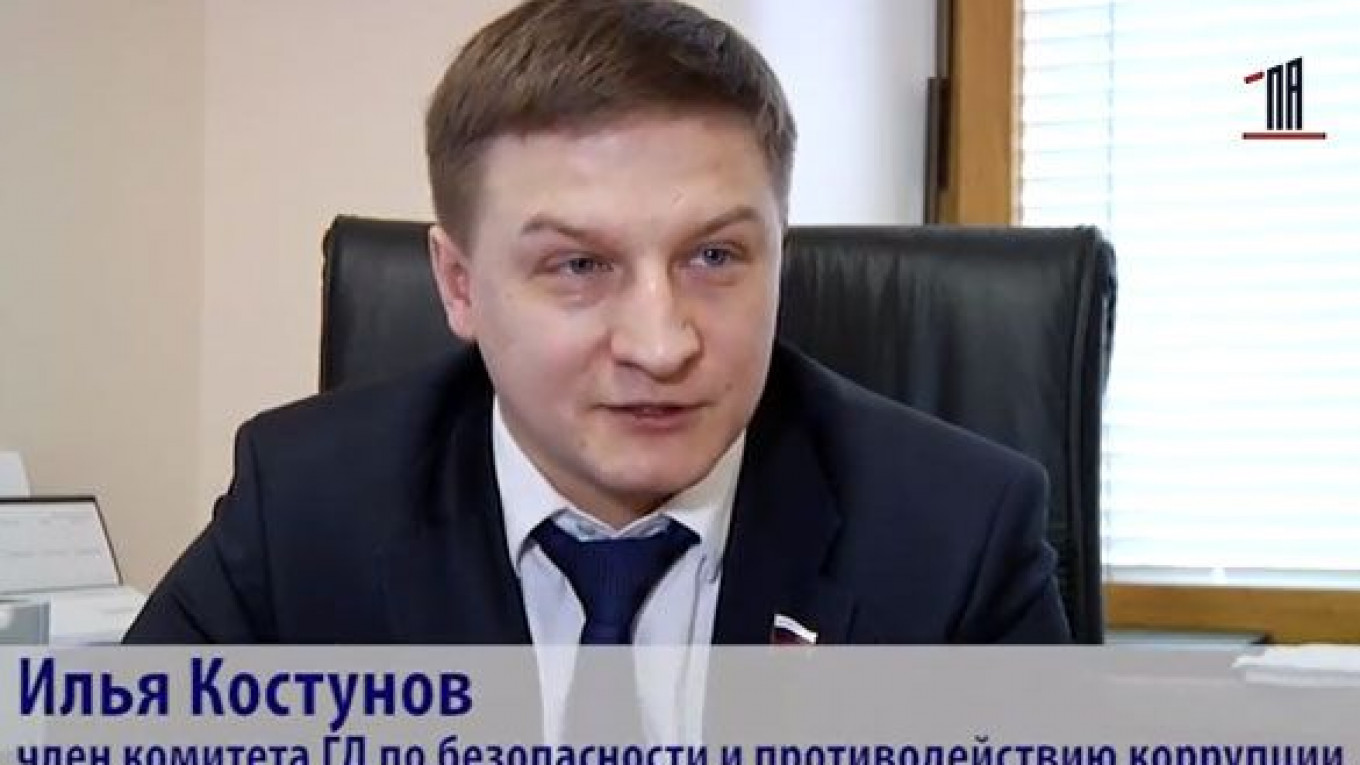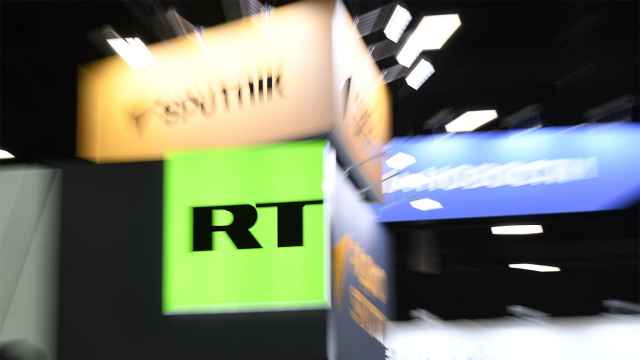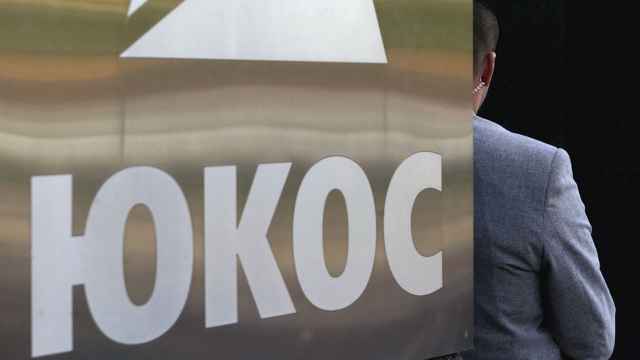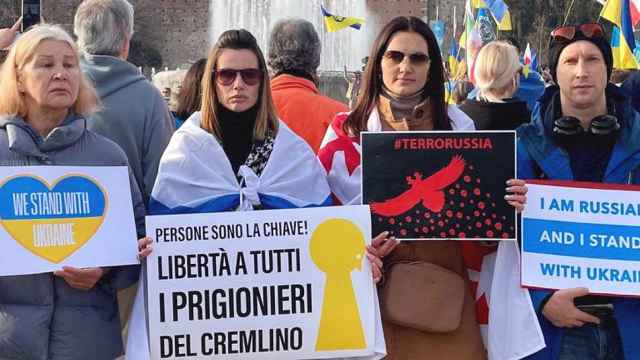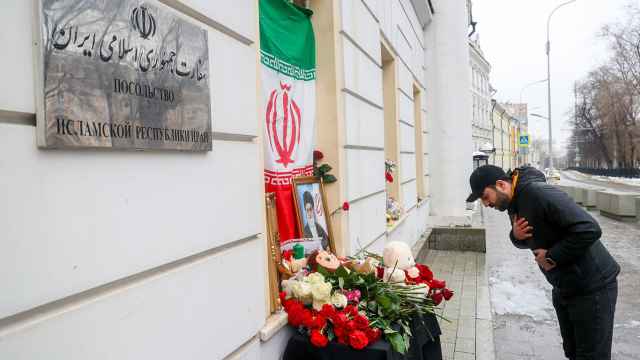A United Russia Duma deputy has asked investigators to check opposition leader Alexei Navalny's Yandex.Money accounts for evidence of money laundering, sparking fears that the anti-corruption campaigner is being targeted for political reasons.
Deputy Ilya Kostunov, 31, said Wednesday that he sent an official request to the FSB and the Federal Financial Monitoring Service after receiving documents from a former Yandex.Money employee that he said showed evidence of money laundering on Navalny's behalf.
Kostunov also asked the agencies to check whether it was legal for Navalny's Anti-Corruption Fund to receive money from a co-branded credit card reportedly in the works.
Many opposition activists use Yandex.Money to collect donations from supporters, helping to fuel the movement that has become the biggest popular challenge to Putin's 12-year rule.
The request comes at a critical time for the opposition, which pulled off two weeks of Occupy-style protests — albeit in small numbers — and hopes to get a second wind from Navalny, arguably the opposition's most popular leader, ahead of a large rally scheduled for June 12.
Navalny is scheduled to be released from prison Thursday after serving a 15-day sentence for his role in demonstrations that police said were illegal.
Kostunov denied that the request was politically motivated.
"When the press reports it through the prism of Navalny, they make it look political. If you replaced 'Navalny' with a United Russia deputy in this case, they'd be calling for his head," he said.
Navalny has several accounts on Yandex.Money for his various projects, which monitor elections, check government contracts and document the quality of Russia's notoriously bad roads.
As of May 20, Navalny's contract-monitoring site RosPil had about 5 million rubles ($158,600), and his road watchdog site RosYama had slightly more than 1,000 rubles ($30) in its account, according to the Anti-Corruption Fund.
It was not clear which account was the subject of Kostunov's request, which he said was aimed at uncovering illegal sources of money, including possibly foreign ones.
Speculation has long swirled about who funds Navalny's projects. In February, Vedomosti reported that Boris Zimin, the son of VimpelCom's founder, and Vladimir Ashurkov, a former manager at Alfa Group, were among Navalny's wealthy backers.
Alexei Panin, an analyst with the Center for Political Information, suggested that the request could be aimed at revealing Navalny's powerful supporters, a suspicion Kostunov seemed to confirm.
"This request isn't aimed at Navalny. I'd be very surprised if Navalny would answer for any wrongdoing. Maybe he honestly thought he was receiving money from many sources instead of just a few," Kostunov said.
A spokeswoman for Yandex.Money disputed the veracity of the alleged documents.
"We don't comment on rumors and fantasies, and we don't see anything besides that here," wrote Asya Melkumova in e-mailed statements.
Kostunov said Yandex.Money wasn't in a position to judge because it hadn't seen the documents, which he said he wouldn't be releasing to the public.
Navalny has published audits of the accounts on his blog.
Kostunov's request seemed to fit a familiar pattern of legal cases, probes and electronic attacks against opposition figures and their backers.
Law enforcement officials asked Yandex to check Navalny's account in May 2011, and in November, his e-mail account was hacked, allegedly by the pro-Kremlin blogger Hell.
In February, Kostunov asked police to check Navalny's speeches at opposition rallies for evidence of extremism. The Central Bank conducted an unannounced check of bank accounts belonging to Navalny at Vyatka Bank the same month.
Furthermore, opposition leader Sergei Udaltsov is currently facing charges that he assaulted a female journalist linked to the pro-Kremlin youth group Young Russia.
Kostunov, 31, a first-term deputy, is also a former activist with the pro-Kremlin Nashi youth group.
Navalny spokeswoman Anna Veduta dismissed the request as a provocation.
"Go read the Nashi e-mails," she said, referring to e-mails allegedly hacked from Nashi spokeswoman Kristina Potupchik's account and posted online last year.
The e-mails show activists discussing using "fake" workers from Yandex.Money to set up compromising material on Navalny.
Kostunov said he expected a response within the course of a month.
A Message from The Moscow Times:
Dear readers,
We are facing unprecedented challenges. Russia's Prosecutor General's Office has designated The Moscow Times as an "undesirable" organization, criminalizing our work and putting our staff at risk of prosecution. This follows our earlier unjust labeling as a "foreign agent."
These actions are direct attempts to silence independent journalism in Russia. The authorities claim our work "discredits the decisions of the Russian leadership." We see things differently: we strive to provide accurate, unbiased reporting on Russia.
We, the journalists of The Moscow Times, refuse to be silenced. But to continue our work, we need your help.
Your support, no matter how small, makes a world of difference. If you can, please support us monthly starting from just $2. It's quick to set up, and every contribution makes a significant impact.
By supporting The Moscow Times, you're defending open, independent journalism in the face of repression. Thank you for standing with us.
Remind me later.


